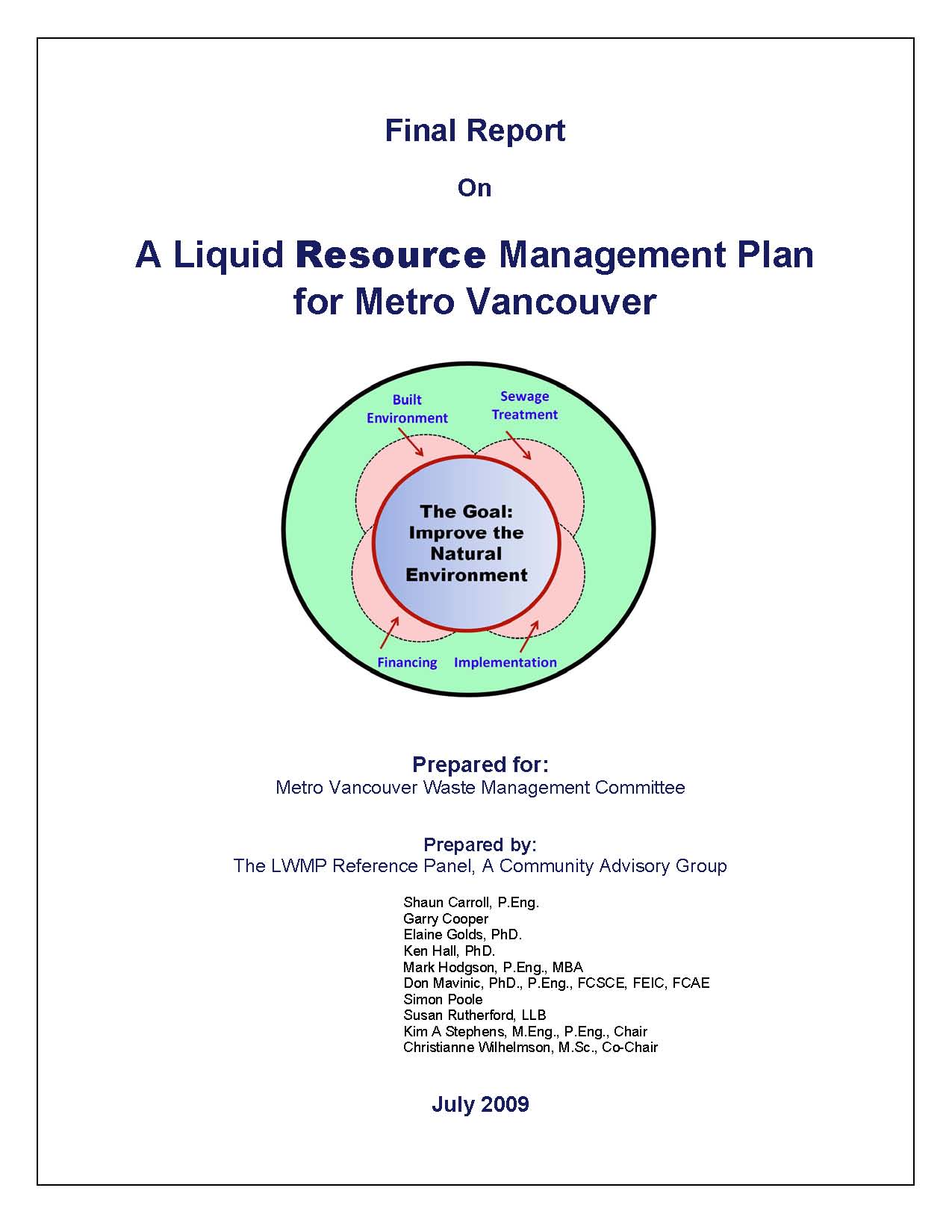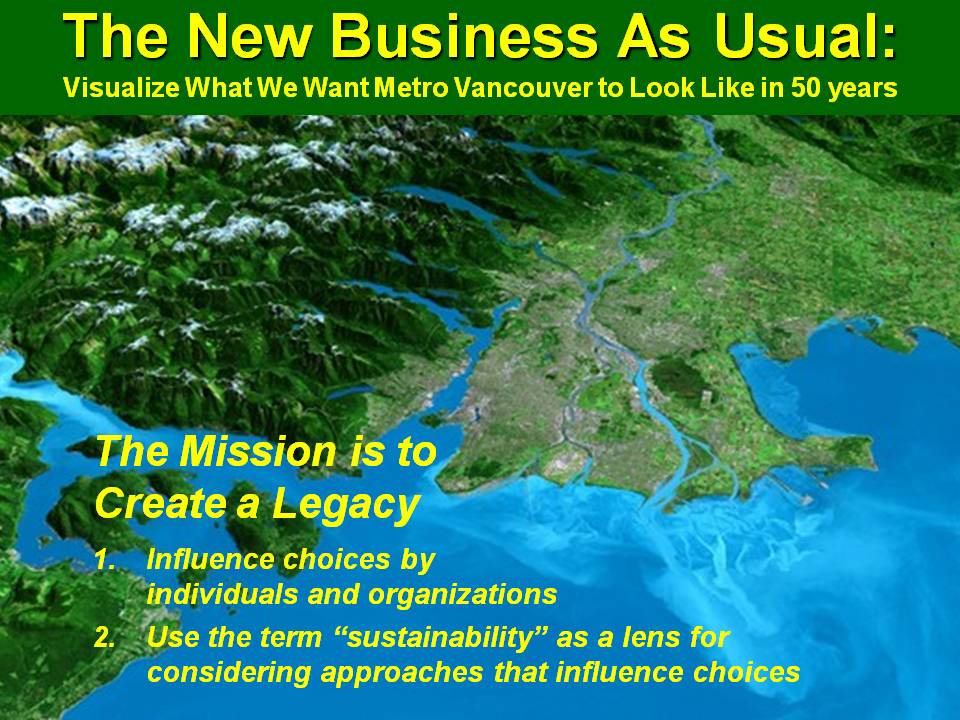Metro Vancouver Reference Panel recommends establishing a “stewarding committee” to ensure Liquid Resource Management Plan stays true to the vision
Metro Vancouver’s Liquid Resource Management Plan
Appointed by the Metro Vancouver Regional Board in April 2008 to provide independent advice and recommendations regarding the management of liquid discharges and rainwater, the Liquid Waste Management Reference Panel presented their Final Report on A Liquid Resource Management Plan for Metro Vancouver to the Waste Management Committee on July 15, 2009.
“Embracing a ‘design with nature’ way-of-thinking and acting will help the region for achieving for managing liquid discharges and rainwater as resources, not waste,” states Kim Stephens, Reference Panel Chair.
Because the strategies and actions in the Plan will have an impact on Metro Vancouver’s sustainability for generations to come, the Final Report emphasizes the need for a “stewarding committee” that has an over-arching role to ensure action occurs and the Plan stays true to the vision over time.
“No matter how good the Plan is, for its vision and goals to be achieved it needs to be accompanied by strong political leadership and commitment….political, financial, staff and public support,” states Christianne Wilhelmson, Reference Panel Co-Chair.
Why a ‘stewarding committee’?
“There is a need for fresh, objective eyes bolstered by a strong political mandate to keep asking questions, prod Metro Vancouver and members toward the vision, and assist with the waste-to-resource paradigm-shift over time,” states Susan Rutherford  of West Coast Environmental Law, and a Reference Panel member.
of West Coast Environmental Law, and a Reference Panel member.
“We have recommended that the proposed ‘stewarding committee’ report directly to the Waste Management Committee, and be outside the existing agency and committee structure currently used by Metro Vancouver.”
“An over-arching ‘stewarding committee’ should have broad representation, supported by specific government representatives. It would provide oversight for technical working groups, such as the current Environmental Monitoring Committee.”
Role of a ‘stewarding committee’
The Reference Panel offered the following supplementary recommendations to help Metro Vancouver move forward with implementation of a ‘stewarding committee’:
- Choose a name for the over-arching “stewarding committee” that reflects the broader and visionary mandate, recognizing that Integrated Resource Recovery is a key element.
- Focus the committee mandate on vision and integration of all the pieces (both within the Plan scope and among all Plans and other policy/actions) that will see the (various) Plans through to effective implementation.
- Draw the committee membership from beyond the regulators – that is, recruit individuals with passion, energy, expert knowledge and wisdom from interested citizenry, non-governmental organizations and academia; and most importantly, who share a commitment to the vision for managing liquid discharges and rainwater as resources.
- Focus the committee members on thinking/solving problems related to seeing the vision through to implementation. The committee members must be able to participate beyond their representative spheres/constraints, to advance the vision.
- Incorporate an outreach and/or education component to the committee’s work – so that a sub-set of the group could go talk to a sub-committee or other groups, if necessary to prompt action/direction.
- Assign the committee staff resources and a budget large enough to commission research needed from time to time.
Integration that Leads to Action:
The graphic below is included in the Reference Panel Final Report because it illustrates how education leads to implementation. The report states that the elements can be read in both the horizontal and vertical directions.
“Learning is a gradual process. Adults take in new information, reflect on it, blend it with their own experience, test it, and eventually apply it in making decisions. This explains why it will require a sustained commitment by Metro Vancouver members to implement the Plan as a package.”
Redevelopment Creates an Opportunity:
“Because the majority of projected population growth will be accommodated in existing developed watersheds, redevelopment creates the opportunity for the region to ‘do it right’ the second time around,” conclude the members of the Reference Panel in their Final Report.
“The Liquid Waste Management Plan is a powerful regulatory tool because it enables Metro Vancouver municipalities to integrate community design with desired outcomes at a regional scale and individual actions at a site scale.”





